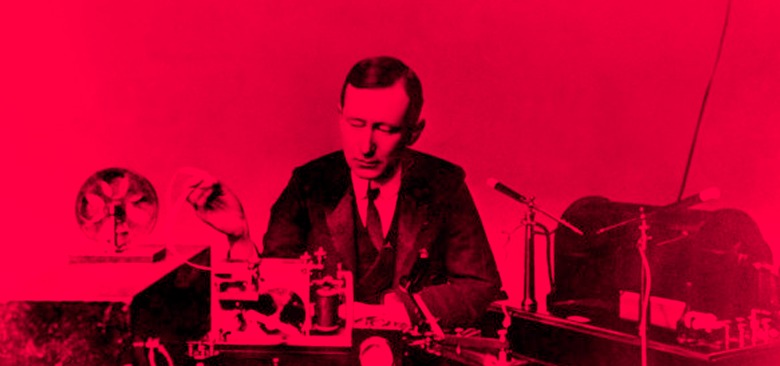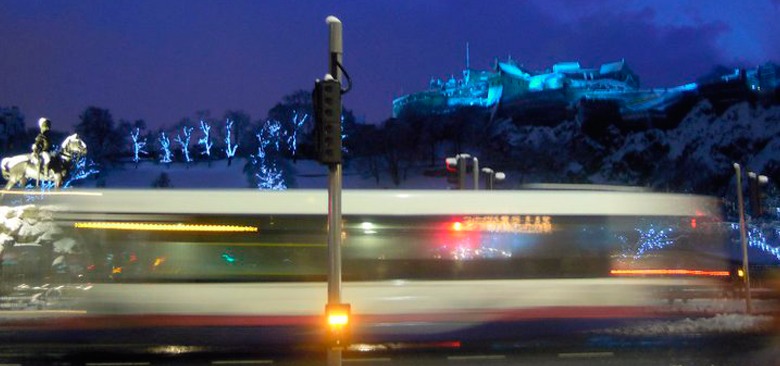Every now and then my eyes are drawn to an object that, for years, played a major role in shaping my ideas about the world. It is a Sony radio receiver, designed for exploring the world of shortwave programmes. I keep it on a shelf near where I write as a piece of nostalgia. I have used it to listen to all sorts of things, but mainly the BBC.
Category:
Words on paper
Christmas, like childhood, is burdened by the melancholy that comes from knowing that it must eventually come to an end. But this melancholy is something that we only recognise as adults. No child feels it as they stand before the glow of the Christmas tree lights or listen to children’s carols. To feel it, you need to grow up, you need to lose someone and to realise that Santa doesn’t really exist. Although perhaps they can sense it somehow: my only unhappy memory of Christmas as a child is of thinking about the day we would have to take down the tree. A natural pessimist, I started the countdown on Christmas Day itself and the following day the three wise men met their tragic fate. Brit Es Magazine está creada por gente que vive fuera de su ciudad; algunos vuelven siempre a casa por estas fechas y algunos otros lo celebramos con las familias que nos hemos inventado en el camino.
Galdós produced a very disappointing translation of Dickens. Blasco Ibáñez plagiarised translations of Shakespeare. Some translators missed pages out of their translations and complete versions have only recently become available. And all of them, according to Eduardo Mendoza, are suffering from the same malady, the anger that takes over translators. It has only been a few years since decent translations by Spanish authors started to appear, Spanish authors lending their voices to English authors who they admired, or whose works inspired them.
Yusef Elías remained in charge of the store and Manuel Varela travelled to town in the wagon, sitting beside the reporter. The road seemed never-ending to Manuel, despite having such good company. Acuña was like an encyclopaedia: he knew everything about the history of his family and the circumstances that had obliged him to emigrate. He talked about Spain and Galicia just as Héctor spoke of his own country and region, with a self-assuredness that made it seem as if he had invented those lands himself, and all the people that lived in them.
Yusef Elías the Turk, a travelling merchant, arrived at the store in the midst of a blinding snowstorm, in need of shelter from the weather. Varela and Julián helped him loose his horses in the corral and unload his wagon; and thus he became an unwilling guest with little hope of continuing on his journey home, way up north. The need to sell had compelled this weather-beaten man to venture further south than prudence recommended.
Old Pedro Moreno left with a list of requisitions and a bundle of letters. One letter was for Paulina, his words painting the beauty of the lands he had ventured to; another, for his teacher, confirmed the grandeur of the “Pre-Andean” hills, as the geographical treatise he had brought with him referred to them; and asking him to make sure Paulina Mouzo had everything she needed. In the last paragraph, Manuel informed the schoolteacher that Ibrahim was still in possession of the savings that the young widow’s husband had amassed with sweat and loneliness on the harsh desert roads.
The wagon departed, with a troop of spare horses behind. The weather was fair and all the spectacle and splendour that his teacher had described unfolded before Manuel: a world of flat topped hills, raw earth and sheets of water, green tints bordering the blue; brown earth once more; until white painted peaks like the ones in the sierras of San Fiz de Lamas rose slowly over the horizon.
On a morning like any other, sometime around Christmas, amidst a lot of sun and seagulls, a ship arrived carrying passengers and cargo. The usual tangled uproar took place, the little tugboat blowing smoke while it towed in the chatas, which were carrying all sorts of things on board: scared, crying children; extravagant consignments — including one upright piano; men who would not let go of their bags and demanded to be carried to dry land along with them; women coming to make the impossible possible in this male territory of oil-workers and shepherds.
When Manuel and his friend were well seasoned by the sun and the ocean winds, the ship finally reached a sea of red-brown water which the sailors on their ship called a river. On the shore there was a big port and cluster of long, tall buildings, with police, customs, health inspection and a “Hotel for Immigrants”.
Don Emeterio Suárez de Valcarría y Candia was a great huntsman, and an even better womaniser. It was well known throughout the region that, as soon as the season opened, he’d be up in the mountains, day after day, goaded on by the smell of gunpowder with not a thought in his head but feathers and hides and trophies.




